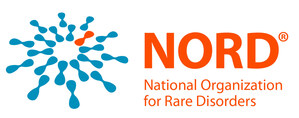WASHINGTON, May 15, 2012 /PRNewswire-USNewswire/ -- The House and Senate versions of "PDUFA V" are on track for timely congressional approval and represent the most significant legislative advances for the rare disease community since the Orphan Drug Act, speakers at a forum hosted by the National Organization for Rare Disorders (NORD) said today.
(Logo: http://photos.prnewswire.com/prnh/20110719/DC37656LOGO-b)
They also said the new provisions reflect years of hard work by NORD and its advocacy partners in the rare disease community.
"Things appear to be very much on track, and there's a good chance that we will see timely implementation before the September 30 deadline," said Paul Kim, a partner in the Washington law firm, Foley Hoag, at the NORD Corporate Council meeting.
PDUFA -- the Prescription Drug User Fee Act -- must be reauthorized by Congress every five years. It is legislation originally enacted in 1992 that authorizes the Food and Drug Administration (FDA) to collect fees from companies seeking to have products reviewed. It provides significant funding for FDA and allows FDA to review new drugs more quickly.
Steven Grossman, deputy executive director of the Alliance for a Stronger FDA, said the rare disease patient community, through NORD, has made its voice heard in the current versions of the House and Senate PDUFA bills. He added that the provisions related to rare diseases in the current versions of PDUFA represent the culmination of many years of hard work by NORD and its partners in the rare disease community.
Specifically, Grossman cited the following as "wins" for the rare disease community in the proposed legislation:
- an increase in staffing for the rare disease programs in FDA's Center for Drug Evaluation and Research (CDER) and Center for Biologics Evaluation and Research (CBER)
- increased opportunities for interaction between reviewers and rare disease patient representatives, as well as industry
- broadened programming in non-traditional clinical trial design
- staff training on issues specific to rare diseases and orphan products for FDA reviewers
- and integration of FDA's Rare Disease Program staff into review teams
Another important result of the bills, he added, would be revision of current conflict-of-interest provisions so that rare disease medical experts and patient organizations could provide input in the review of potential rare disease therapies.
Also of particular interest to NORD, Vice President for Public Policy Diane Dorman noted, are new provisions related to FDA flexibility in reviewing therapies for rare diseases and improvements in the Humanitarian Use Device (HUD) programs. NORD has worked closely with Congressional staff and others to correct provisions that currently limit the development of desperately needed medical devices for small patient populations, she said.
Dorman added that NORD also strongly supports language related to "breakthrough therapies" -- speeding the development of potential new treatments that show early promise for serious unmet medical needs.
Success Rare is High in Orphan Product Approvals
Another speaker at the meeting, Anne Pariser, MD, Associate Director for Rare Diseases in FDA/CDER, described a comparison of the review of products for rare and common diseases. The approval rate over the period 2006 to 2010 was actually slightly higher for rare disease products than for products for common diseases, she said (77% vs. 71%). Furthermore, she noted, the numbers show that orphan designations and product approvals are highest in the diseases of low prevalence, even though the common perception is that products are more often approved for the diseases on the higher end of the rare disease spectrum.
FDA Forming Rare Disease Council
Gayatri Rao, MD, JD, Acting Director of FDA's Office of Orphan Products Development (OOPD), said that FDA is forming a new Rare Disease Council with representatives of OOPD, CDER, CBER, the Center for Devices and Radiological Health (CDRH), the Office of Special Health Issues (OSHI) and the Center for Food Safety and Nutrition (CFSAN). The purpose, she said, will be to increase communication among all these centers related to rare diseases and orphan products.
The NORD Corporate Council meets twice a year to discuss opportunities, issues and challenges related to developing diagnostics and treatments for rare diseases. Today's meeting took place at the Renaissance Hotel on Dupont Circle in Washington DC.
SOURCE National Organization for Rare Disorders (NORD)
WANT YOUR COMPANY'S NEWS FEATURED ON PRNEWSWIRE.COM?
Newsrooms &
Influencers
Digital Media
Outlets
Journalists
Opted In






Share this article